“It has been a good day for everyone, even for God. No sign of rain. No evidence of disease or blood.”El año de la peste [The Year of the Plague] (Felipe Cazals, 1979)
Jan
12
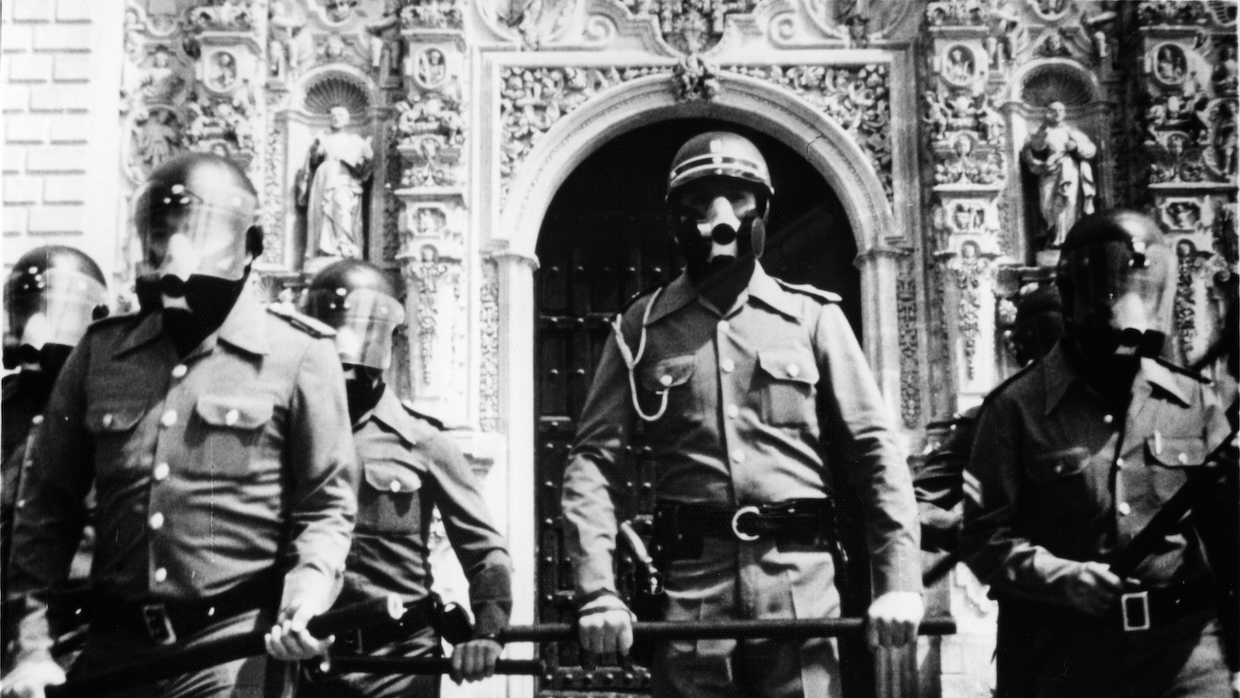
Armed police wearing gas masks in front of the Palacio Nacional, Mexico City. DP: Xavier Cruz.
Mexico
El escapulario [The Scapular] (Servando González, 1968)
Nov
20
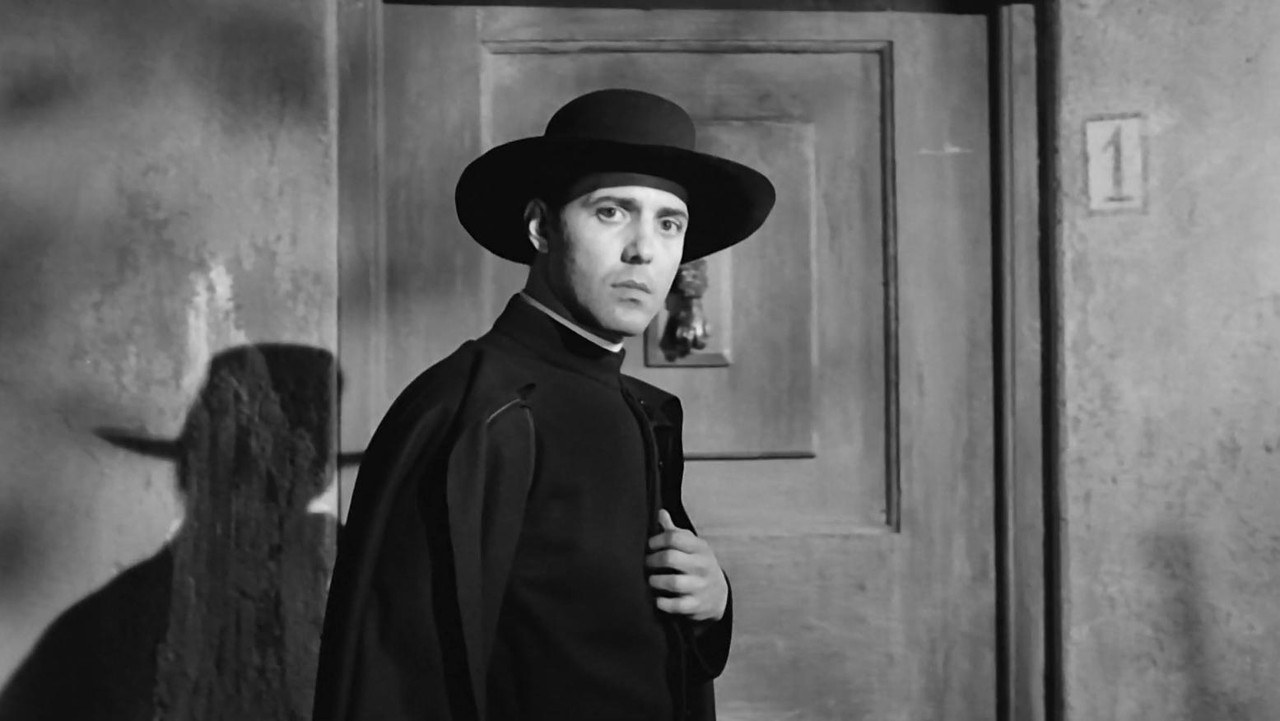
Padre Andrés (Enrique Aguilar). DP: Gabriel Figueroa.
“¡Mexicanos!
¡Vivan los héroes que nos dieron patria!
¡Viva Hidalgo!
¡Viva Morelos!
¡Viva Josefa Ortiz de Domínguez!
¡Viva Allende!
¡Vivan Aldama y Matamoros!
¡Viva la independencia nacional!
¡Viva México! ¡Viva México! ¡Viva México!”La fórmula secreta [Coca-Cola en la sangre / The Secret Formula] (Rubén Gámez, 1965)
Sep
16
El Grito de Independencia
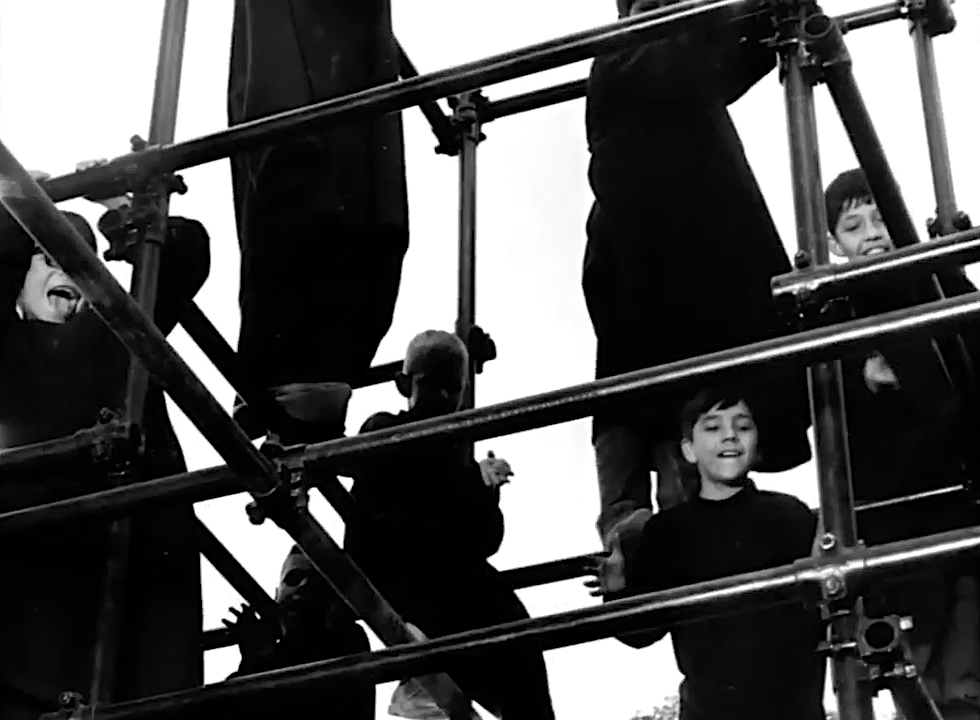
Grinning seminary boys hang from monkey bars. DPs: Salvador Gijón, Rubén Gámez & Segismundo Pérez de Pedro 'Segis'.
El Grito de Independencia: ¡Viva México!
– El Grito
Accompanied by Juan Rulfo's poem, Gámez explores Mexico's identity, and loss thereof. Crying out for the Mexican with Coca-Cola in the blood.
“I am the great traitor. There must be no other. Anyone who even thinks about deserting this mission will be cut up into 198 pieces. Those pieces will be stamped on until what is left can be used only to paint walls. Whoever takes one grain of corn or one drop of water… more than his ration, will be locked up for 155 years. If I, Aguirre, want the birds to drop dead from the trees… then the birds will drop dead from the trees. I am the wrath of God. The earth I pass will see me and tremble. But whoever follows me and the river, will win untold riches. But whoever deserts…””Aguirre, der Zorn Gottes [Aguirre, the Wrath of God] (Werner Herzog, 1972)
Jun
20
World Productivity Day

Don Lope de Aguirre (Kinski), his eyes focussed. DP: Thomas Mauch.
A character who is always on the GO [sic] for World Productivity Day
– Don Lope de Aguirre
Conquistador Don Lope de Aguirre drives his men deep into the Peruvian jungle, to El Dorado
El gran calavera [The Great Madcap] (Luis Buñuel, 1949)
May
31
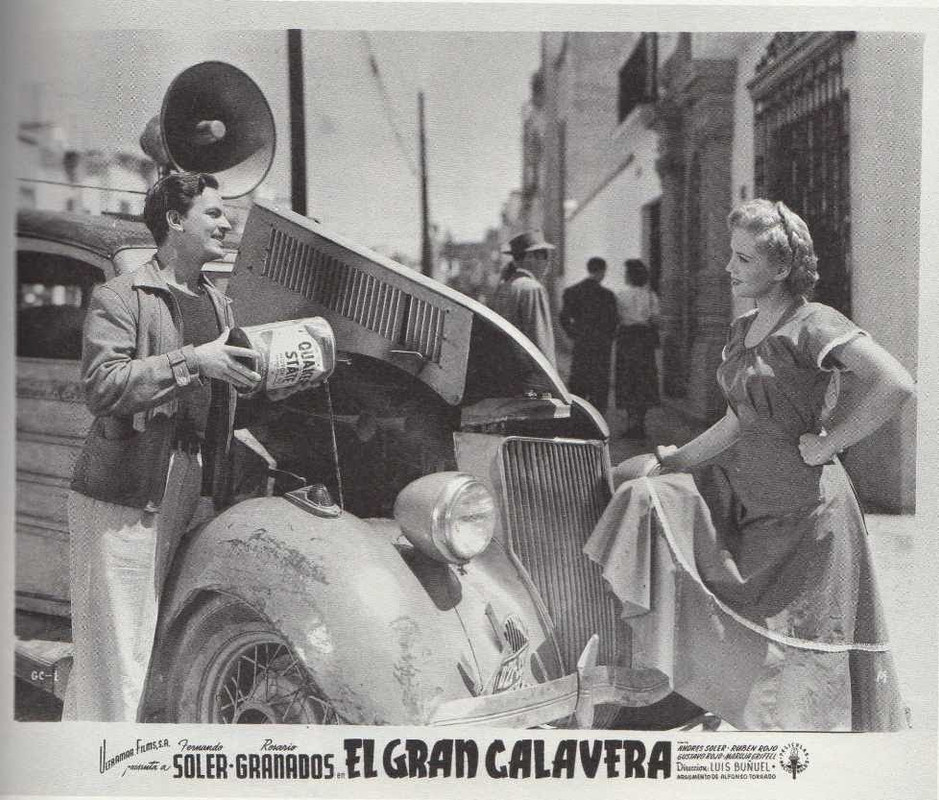
Lobbycard. DP: Ezequiel Carrasco.
Misterios de la magia negra [Mysteries of Black Magic] (Miguel M. Delgado, 1958)
Apr
12
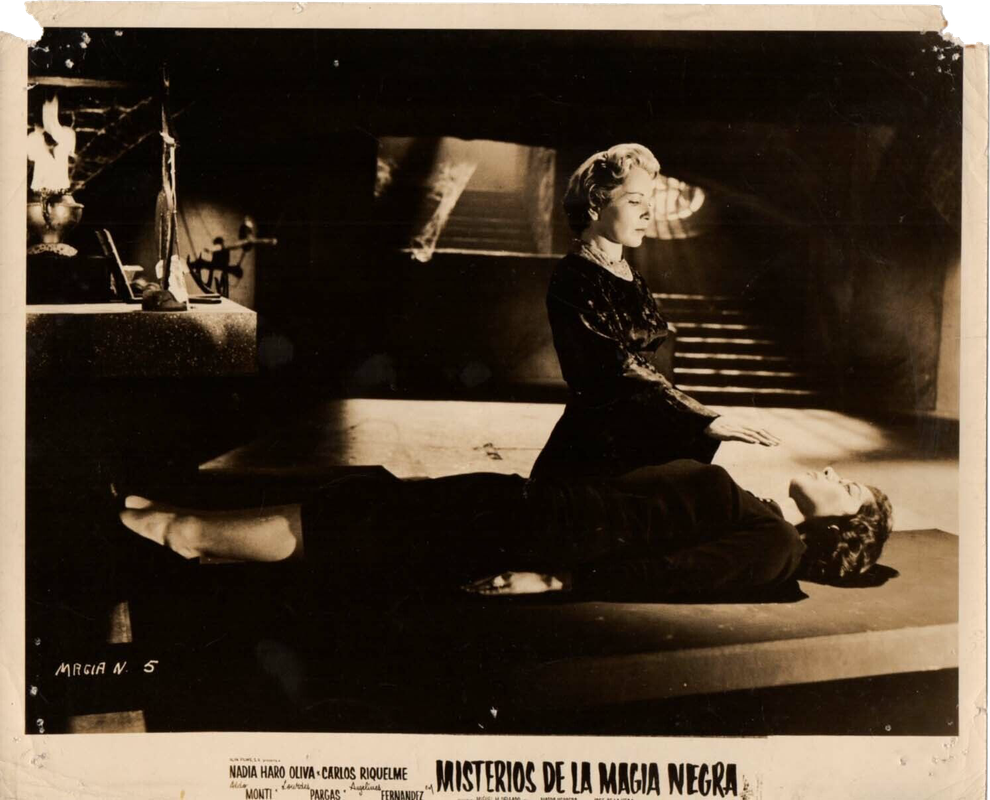
Two well-dressed women, one of them prostrated on a stone slab. DP: Víctor Herrera.
“This is the account
of when
all is still silent
and placid.
All is silent
and calm.
Hushed
and empty is the womb of the sky.”Chac: Dios de la lluvia [Chac: The Rain God] (Rolando Klein, 1975)
Mar
30
mythology

The villagers light torches in preparation of the ritual. Screenshot via. DP: William B. Kaplan + Álex Phillips Jr..
Mythology on the date Wrath of the Titans (2012) was released.
With their shaman lost to alcohol, villagers make their way to a diviner in the hope to appease Chac, the rain god.
– Popul Vuh, The Primordial World
Filmed in the forests of Tenejapa, Chiapas, Chac is probably the first film completely in Tzotzil, one of several Maya languages, and based on themes found in the Popol Vuh.
Macario (Roberto Gavaldón, 1960)
Jan
22
National Poverty in America Awareness Month

Macario (Ignacio López Tarso) passes a Día de los Muertos altar, stacked high with candles, human skulls and bones, and cempasúchil (marigolds), whose fragrant and colour lead the Dead back to their family on this revered day. DP: Gabriel Figueroa.
Poverty: National Poverty in America Awareness Month (USA)
Macario, poor and hungry, wishes to eat a whole turkey all by himself on Día de los Muertos. When he finally has the opportunity, he is interrupted three times: by the Devil, by God, and by Death. With one of them, he shares his meal.
El esqueleto de la señora Morales [Skeleton of Mrs. Morales] (Rogelio A. González, 1960)
Sep
6

Señora Morales (Amparo Rivelles) looks on in horror while señor Morales (Arturo de Córdova) enjoys his meal. DP: Víctor Herrera.
Los hermanos Del Hierro [My Son, the Hero] (Ismael Rodríguez, 1961)
Mar
19
revenge
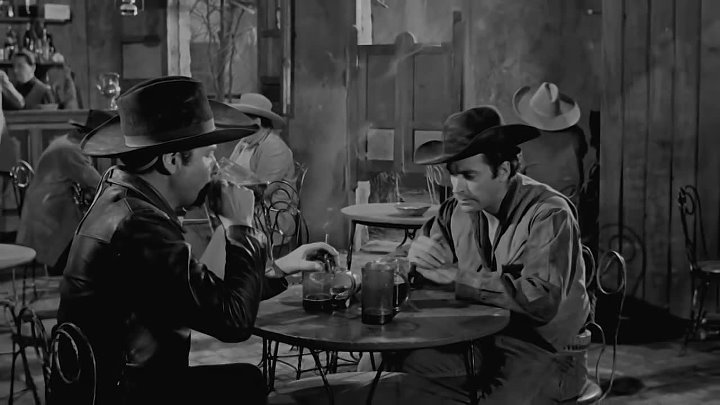
Brothers Martín (Julio Alemán) and Reynaldo Del Hierro (Antonio Aguilar) drinking in a cantina. Reynaldo, the older one, looks pensive while the younger takes a big gulp of beer. DP: Rosalío Solano.
A dish best served cold.